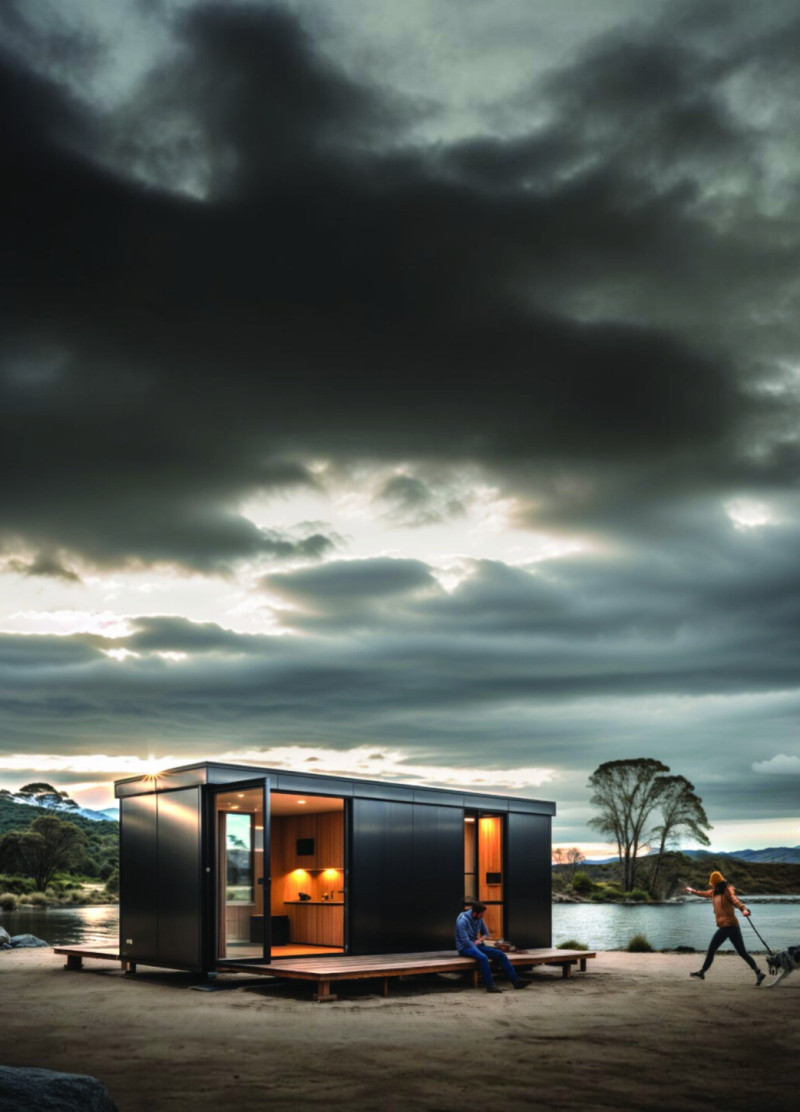5 key facts about this project
The project features a compact footprint with a minimalist aesthetic, characterized by clean lines and an emphasis on connectivity with its surroundings. Large glass openings facilitate natural light and promote a visual connection to the outdoor environment. Its design advocates for a communal and social atmosphere, with an open floor plan that intertwines living, cooking, and recreational spaces. The adaptability of the layout caters to diverse lifestyle requirements while promoting efficient use of space.
Sustainability is at the core of the "Nest," employing a diverse range of materials thoughtfully selected for their environmental impact and performance characteristics. Key materials include a metal framework for structural integrity, wood for warmth and insulation, and ceramic tiles for durability in flooring applications. The incorporation of photovoltaic panels on the roof ensures energy sustainability, while a rainwater harvesting system enhances resource efficiency within the dwelling. These features demonstrate a commitment to eco-friendly design principles.
A unique aspect of the project is its scalability. The design can be modularly constructed, allowing for the easy transportation and assembly in different locations. This factor is significant for addressing housing affordability and accessibility in various settings. Additionally, the design's flexibility allows for customization, catering to specific community needs and cultural contexts.
The project also emphasizes technological integration. Smart home systems are embedded within the architectural framework, providing users with enhanced control over energy consumption and living conditions. This blend of architecture and technology positions the "Nest" as a forward-thinking residence that adapts to modern living.
To understand the full range of architectural ideas presented in the "Nest," viewers are encouraged to explore the architectural plans, sections, and designs further. These details will provide deeper insights into the project's innovative approaches and its contribution to contemporary housing solutions.


 Matias Ellero,
Matias Ellero, 























